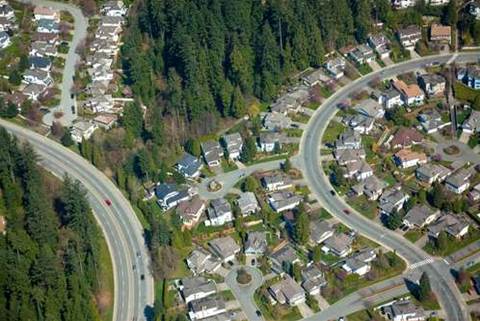Politicians, ISPs and analysts are calling on the Federal Government to legislate against exclusive deals that lock homeowners in new housing estates into Telstra's broadband and phone services.
The deals are being reviewed by the Federal Government and - iTnews understands - also by Telstra.
A Telstra spokesperson was unable to comment at the time of publication.
The arrangements were highlighted by South Australian parliamentarian and member for Fisher, Bob Such, in a brief submission to the Senate Select Committee on the national broadband network last week.
"I query those contractual arrangements between housing estate developers and telecommunication companies that prohibit new home owners from using an internet provider of choice," Such stated.
"The only internet provider that may be used is stipulated in the development [or] purchase agreements."
Such was referring to Telstra's Velocity fibre-to-the-home network, which was being rolled out in "smart communities" - essentially new housing estates - nationwide.
Traditionally, developers engaged with Telstra to deploy copper lines within new estates. This infrastructure was, by law, open for access to other service providers to enable them to offer retail services to those homebuyers.
But next-generation networks, including Telstra's Velocity and NextG, are not subject to the same access framework set out in the Trade Practices Act.
Telstra has been able to shut its retail competitors out of new housing estates across Australia by entering into exclusive arrangements with developers in return for rolling out fibre in their estates.
The retail service exclusivity is set out in clauses in the terms and conditions [PDF] of Telstra's Velocity product.
"Telstra shall own the network infrastructure," the terms and conditions state.
"The developer must not use, or permit anyone else to use, the network infrastructure."
However, some home buyers claim to have been unaware these terms would restrict them to Telstra services when they bought into the estate.
Home buyers were provided with a credit of between $1,500 and $2,000 for the first 12 months.
Developers, politicians and Internet forums are receiving complaints from buyers stung by the incumbent's fees for Velocity services.
"Had we known we were going to be at Telstra's mercy forever we would not have brought where we did," said one user of the homeone forums, ‘misscrow'.
Such told iTnews his Senate Committee submission and an earlier letter to Communications Minister Stephen Conroy were sourced from a resident that also did not realise the ramifications of buying into a Telstra smart community.
"I'd have thought the arrangement with Telstra would border on being a restrictive trade practice," Such said.
At least one developer who spoke to iTnews on condition of anonymity said there had been "a little bit" of backlash from residents over the lock-in arrangements with Telstra.
"Generally they get over it," the developer said. "At the end of the day they're buying the location, not the [communications] service."
In its consultation paper on greenfields estates, the Federal Government provided its strongest yet indication that exclusive arrangements in Velocity estates could be dismantled.
"The Australian Government does not consider that developers or FTTP service providers should be able to insist on exclusive wholesale or retail arrangements in Greenfield developments which restrict entry of alternative providers," the paper stated.
"To facilitate service-based competition, at a minimum, carriers providing FTTP services in [estates] would be subject to the access framework set out in Part XIC of the Trade Practices Act".
Managing director of Adelaide-based ISP Internode, Simon Hackett, believed legislation was the key to unstitching the exclusive deals.
"Internode has regularly sought wholesale access to Telstra Velocity deployments from Telstra Wholesale and its requests have regularly been denied," Hackett said.
"It seems that it will indeed require changes to the law before the Gorilla will play nicely in FTTH terms."
Telecommunications analyst Paul Budde speculated that Telstra had already initiated moves to ready Velocity for open access.
"Velocity is steeped in the thinking that came out of the Sol Trujillo era. It was all about monopolies and not giving customers any choice," Budde said.
"I wouldn't be surprised if Telstra had changed its mind because if they don't change it, there will be regulations created that overrule the [arrangements]."
Other industry sources said rumours had been swirling of a change in thinking at Telstra.
But, according to one source, it could take Telstra twelve months to ready their internal Velocity systems, procedures and processes for open accessibility.
Telstra recently reported "over 3,100" homes on its Velocity network.
It is unknown how many more are "under contract" to be constructed.
Are you in a Telstra Velocity-based housing estate? Did you understand the terms and conditions before purchasing your house and/or land?





_(27).jpg&h=142&w=230&c=1&s=1)







.jpg&w=100&c=1&s=0)








_(1).jpg&q=95&h=298&w=480&c=1&s=1)


